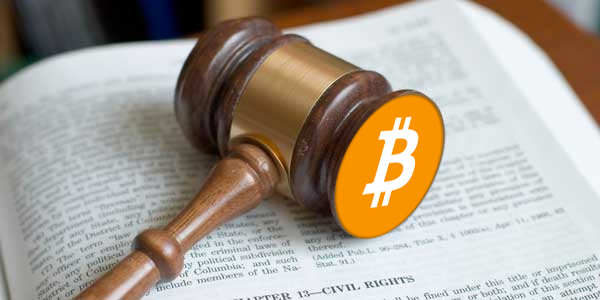
In the age of Smart Contracts, computer codes have become the foremost way to regulate human behavior and maintain balance within the society. The necessity of an entire legal system has been put on the sidelines as things are slowly moving away from its equilibrium. Computer Codes are now present in almost every facet of one's life playing a stronger role in how people function. But in the meantime, people have to adapt the legal frameworks to the existence of the Self-enforceable contracts, since they don't fit it in any particular existing framework.
The following list is a brief venture into the domains where blockchains have penetrated and what government should make laws to adapt to them.
Cryptocurrencies Used as Legal Tender - Since Cryptocurrencies are largely decentralized, so governments and other regulatory bodies have (at present) no way to screen transactions and prevent any illegal activity from occurring. for example, Cryptocurrencies are used for money laundering and black market transactions. This is a major concern for government regulators.
Cryptocurrencies Having Their Own Monetary Policies - Bitcoin was built with code written to limit the amount of coins that are produced and the total number of such coins that will ever be produced. This is in contrast to what Central Banks do, who print 'New Money' as much as they please. This was Bitcoin is more in common to Gold than the existing Fiat currencies.
Taxation of Cryptocurrencies - The decentralized and antonymous nature of certain cryptocurrencies would make collecting taxes another nightmare for the government. Since there would be issues regarding jurisdiction and the ability to collect enough information regarding an individual's transactions that would pose massive obstacles in accounting and collecting for taxes.
Crypto's Used for Corruption - As a continuation of the last points, Different forms of corruption would be much harder to track. Bribes, illicit money cannot be easily identified to an individual or a group as the money could be anonymously distributed across multiple accounts.
Many States in the United States have deemed Cryptocurrencies as Illegal and many business focused in this domain were asked to shut down in states like West Virginia. But this is only a deterrence from the main issue where governments try to avoid the issue entirely.
Since most transactions are done amongst people who have no direct contact or face-to-face communtication, this lack of evidence also prohibits the government from enforcing any judicial act. Certain Countries have made financial services dealing with cryptocurrencies to comply with KYC (Know Your Customer) and AML.
- Laws Regarding Privacy - Blockchains store all information regarding the history and validity of the transactions which is visible to all. But Certain elements are encrypted to protect privacy. For Instance, your identification information might be encrypted, but the proof of your identity could be used to verify that it is indeed you, without releasing into private sensitive data. And Information cannot be deleted in a blockchain but only modified. So government laws that require the deletion of information would not be possible.
There are also legal issues pertaining to the ownership of that information, as according to the Arizona state law the person who secures the information owns it and not the person who created it.
- Blockchain records As Evidence in court - Due to blockchains stringent encryption techniques, blockchains will have major legal ramifications with the ability to use those records as pieces of evidence.
Many Law schools have started introducing courses which tackle blockchain laws on how the existing legal framework of contracts could work symbiotically with smart contracts to encompass all legal issues.
- Ownership of Assets - Wealth is generally associated with the ownership of assets. Having a public ledger blockchain would make it much more equitable regarding the ownership and the transfer of ownership in the event of a sale or acquisition. This would make the process more efficient and reduce corruption and forgery of information.
Will Blockchain technology set its own standard of law and replace the existing legal frameworks is the million dollar question question. But in its current state, it has to adapt to the existing system in the most coherent way possible and legislators have to address this issue before it get out of hand.
Image Credits: Bitcoin Rewind
Congratulations @ingloriousaction! You have completed some achievement on Steemit and have been rewarded with new badge(s) :
Click on any badge to view your own Board of Honnor on SteemitBoard.
For more information about SteemitBoard, click here
If you no longer want to receive notifications, reply to this comment with the word
STOPIf you want to support the SteemitBoard project, your upvote for this notification is welcome!
Downvoting a post can decrease pending rewards and make it less visible. Common reasons:
Submit
Especially the taxation and corruption issues make me think. The beauty of the blockchain technology is the decentralization and anonymity, yet these create dangers beyond our recognition as well. To fight these would be a violation of the core values of the blockchain technology, but to just let them be would be potentially dangerous. A tough nut to crack indeed.
Downvoting a post can decrease pending rewards and make it less visible. Common reasons:
Submit
Finding a balance between privacy and accountability is very crucial
Downvoting a post can decrease pending rewards and make it less visible. Common reasons:
Submit
Agreed...
There is always talk about what blockchain tech can do, but nobody wants to look at the legality. If there will be a mass adaption, there will be several laws that have to change!
Great Content!
Downvoting a post can decrease pending rewards and make it less visible. Common reasons:
Submit
The government will tear its hair off solving this issue haha.
Thanks!
Downvoting a post can decrease pending rewards and make it less visible. Common reasons:
Submit